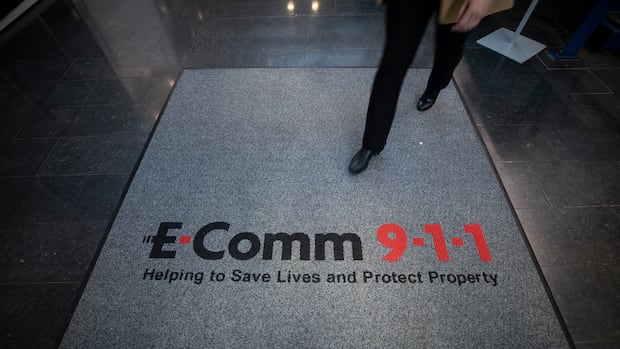Lifestyle
B.C. 911 System Under Review: Calls for Greater Clarity and Oversight

A recent review highlights the need for clearer oversight of British Columbia’s 911 system. This finding comes from two independent reports conducted by Ernst and Young, which were commissioned by the provincial government. Concerns regarding rising costs and a lack of transparency prompted the review of E-Comm (Emergency Communications for British Columbia Incorporated), the non-profit organization responsible for emergency communications in the province.
The review was initiated in December 2024, following complaints from municipalities, police, and emergency service providers. On November 7, 2024, the reports were released, assessing the operational framework of E-Comm and providing recommendations for the future of emergency communication services in British Columbia.
The findings acknowledge that while the 911 system effectively serves residents, there is a significant “lack of well-defined, comprehensive and cohesive service delivery model for emergency communications.” Founded in the 1990s to support emergency incidents in the Lower Mainland, E-Comm has since expanded its operations to include police and fire calls across most of the province. The reports emphasize the importance of updating the system to align with national standards, which will eventually incorporate text and video communication capabilities for 911 callers.
Recommendations and Government Response
The reports outline 25 recommendations aimed at enhancing E-Comm’s governance and organizational structure to improve service delivery. Among these is a call for the provincial government to clearly define its role in emergency communications, potentially assuming greater responsibility for the sector.
Public Safety Minister Nina Krieger has stated that the province will evaluate all recommendations but is prioritizing immediate changes at E-Comm. “The priority is for E-Comm to strengthen its financial, operational, efficiency and governance practices to get a clear picture of the true cost of service,” Krieger noted. This approach aims to alleviate concerns from municipalities regarding increasing operational costs.
Despite these assurances, some local leaders remain dissatisfied. Deena Beeston, Mayor of Ladysmith, expressed disappointment, emphasizing the need for more robust strategies to address municipal concerns. Ladysmith, along with nine other municipalities on southern Vancouver Island, has voiced concerns over costs that have been shifted to them as E-Comm’s funding model has evolved.
Municipalities currently fund E-Comm through service fees, which are collected via property taxes or levies on landlines. With the decline in landline usage, Beeston argues that this funding model is no longer viable, potentially forcing towns to increase property taxes to cover expenses.
Community and Union Reactions
The reports briefly discuss alternative funding models, including the introduction of a telecommunications levy similar to those in other provinces. Although Minister Krieger acknowledged the possibility of such a levy, she indicated that no decision would be made immediately.
The union representing emergency communication professionals, CUPE 8911, welcomed the reports but expressed concerns that the recommendations do not address core issues. Union local president Donald Grant, who is also a 911 operator, highlighted the urgency of establishing service standards. Grant stressed that “every second counts” during emergency calls, advocating for a standard that ensures every call is connected within 15 seconds. Currently, 98 percent of calls are answered within five seconds, but Grant believes that setting a formal standard could enhance response times further.
As British Columbia navigates the complexities of modernizing its 911 system, the recommendations from the recent review will play a critical role in shaping the future of emergency communications in the province. The response from both government officials and community leaders will be vital in addressing the challenges and ensuring that the 911 service remains effective and sustainable for all residents.
-

 World4 months ago
World4 months agoScientists Unearth Ancient Antarctic Ice to Unlock Climate Secrets
-

 Politics2 days ago
Politics2 days agoSecwepemc First Nation Seeks Aboriginal Title Over Kamloops Area
-

 Entertainment4 months ago
Entertainment4 months agoTrump and McCormick to Announce $70 Billion Energy Investments
-

 Lifestyle4 months ago
Lifestyle4 months agoTransLink Launches Food Truck Program to Boost Revenue in Vancouver
-

 Science4 months ago
Science4 months agoFour Astronauts Return to Earth After International Space Station Mission
-

 Technology2 months ago
Technology2 months agoApple Notes Enhances Functionality with Markdown Support in macOS 26
-

 Top Stories4 weeks ago
Top Stories4 weeks agoUrgent Update: Fatal Crash on Highway 99 Claims Life of Pitt Meadows Man
-

 Sports4 months ago
Sports4 months agoSearch Underway for Missing Hunter Amid Hokkaido Bear Emergency
-

 Politics3 months ago
Politics3 months agoUkrainian Tennis Star Elina Svitolina Faces Death Threats Online
-

 Politics4 months ago
Politics4 months agoCarney Engages First Nations Leaders at Development Law Summit
-

 Technology4 months ago
Technology4 months agoFrosthaven Launches Early Access on July 31, 2025
-

 Top Stories2 weeks ago
Top Stories2 weeks agoFamily Remembers Beverley Rowbotham 25 Years After Murder





















